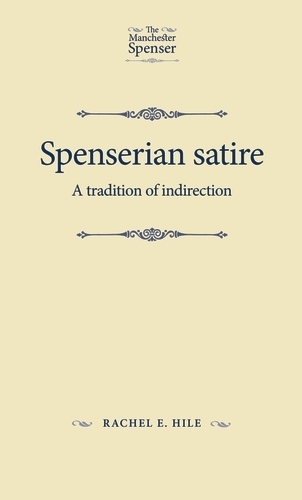
Spenserian Satire: A Tradition of Indirection
(Hardback)
Available Formats
Publishing Details
Spenserian Satire: A Tradition of Indirection
By (Author) Rachel Hile
Manchester University Press
Manchester University Press
2nd January 2017
United Kingdom
Classifications
Tertiary Education
821.3
Physical Properties
Hardback
216
Width 138mm, Height 216mm
Description
Scholars of Edmund Spenser have focused much more on his accomplishments in epic and pastoral than his work in satire. Scholars of early modern English satire almost never discuss Spenser. However, these critical gaps stem from later developments in the canon rather than any insignificance in Spenser's accomplishments and influence on satiric poetry. This book argues that the indirect form of satire developed by Spenser served during and after Spenser's lifetime as an important model for other poets who wished to convey satirical messages with some degree of safety. The book connects key Spenserian texts in The Shepheardes Calender and the Complaints volume with poems by a range of authors in the late sixteenth and early seventeenth centuries, including Joseph Hall, Thomas Nashe, Tailboys Dymoke, Thomas Middleton and George Wither, to advance the thesis that Spenser was seen by his contemporaries as highly relevant to satire in Elizabethan England. -- .
Reviews
Offers an important theoretical framework and textually detailed account of an overlooked genre in the history of satire.
Professor Lowell Gallagher, Studies in English Literature
Hiles book is an engaging and carefully researched study, which not only furthers our understanding of verse satires of the late-sixteenth and early seventeenth centuries, but also invites scholars to reassess the importance of indirect satire in the trajectory of Spensers works and the influence it had on emerging writers. By prompting us to read Spensers satirical work alongside his epic, pastoral, and lyrical poetry, Hile expands our sense of him as the poetss poet
Stuart Hart, The Sixteenth Century Journal, Vol 49, Issue 1, Spring 2018
Author Bio
Rachel E. Hile is Professor of English at Purdue University Fort Wayne
